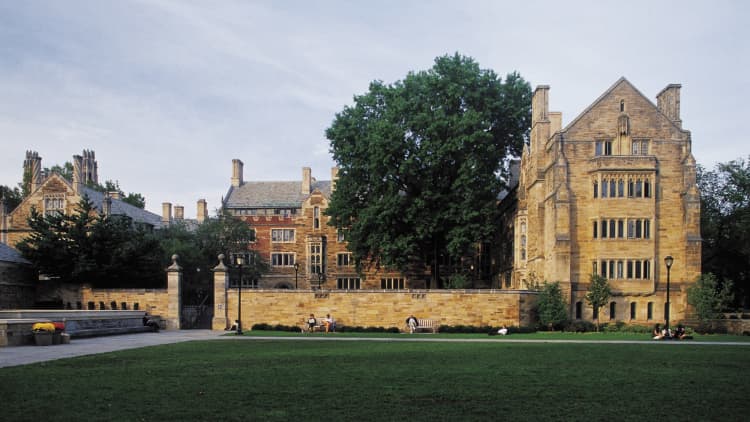Each year, enthusiastic university commencement speakers tell students that the hard work they did in college will pay off if they simply continue to persevere.
But a recent survey from LendEdu highlights how some of graduates' expectations are not being met.
LendEdu analyzed a College Pulse survey of 7,000 college students from nearly 1,000 colleges and universities and found that students, on average, expect to earn $60,000 in their first job out of college.
Most will earn closer to $50,000.
PayScale estimates the typical graduate with zero to five years experience makes $48,400. The National Association of Colleges and Employers (NACE) calculates that the preliminary average starting salary for graduates from the class of 2018 is about $50,004.
NACE data also indicates that college graduate starting salaries have recently seen a subtle dip. The organization estimates that the starting salaries of the class of 2018 were actually 2 percent lower than the average starting of the class of 2017 ($51,022).
Despite this statistic, there are many good reasons for college graduates to be optimistic. Wages are finally beginning to budge after years of sluggish growth and recent figures from NACE indicate that employers plan to hire 16.6 percent more members of the Class of 2019 than the previous year's graduating class. That's the biggest increase among recent graduates since 2007.
"If you're graduating from college now, you've timed it perfectly," Brian Kropp, vice president at research firm Gartner tells CNBC Make It. "It's hard to think of a better labor market that you could go into."
Historically low unemployment rates are forcing companies to hire more recent graduates. The unemployment rate for all U.S. workers is roughly 3.9 percent, but the unemployment for college educated workers is just 2.1 percent.
Kropp says this dynamic gives recent graduates considerable leverage when interviewing for jobs and negotiating for starting salary.
"The reality is, most companies will not hit goals in terms of the number of campus hires they want to hire this year," explains Kropp. "What that means is as a campus hire, you have the ability to shop offers more than ever before."
He continues, "A lot of companies will come in and say 'This is the standard offer for new campus hires, associates, analysts,' whatever it may be. But given how competitive the market is, they actually have a lot more flexibility in terms of signing bonus, in terms of bonus potential and so on."
Additionally, research suggests college still pays off in the long run. In 2018, college graduates earned weekly wages that were 80 percent higher than those of high school graduates. The Bureau of Labor Statistics (BLS) reports that Americans with a bachelor's degree have median weekly earnings of $1,173, compared to just $712 a week for those who have a high school diploma.

The United States Social Security Administration calculates that men with bachelor's degrees earn roughly $900,000 more over the course of their lifetime than high school graduates, and women with bachelor's degrees earn $630,000 more.
Like this story? Subscribe to CNBC Make It on YouTube!
Don't miss:



